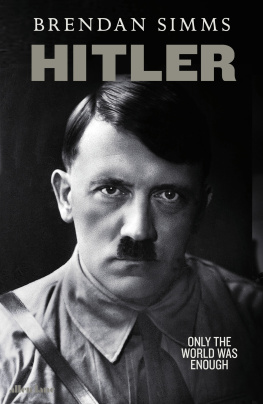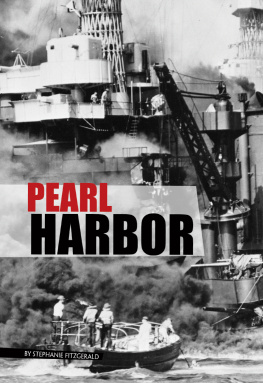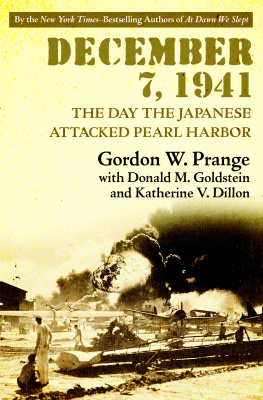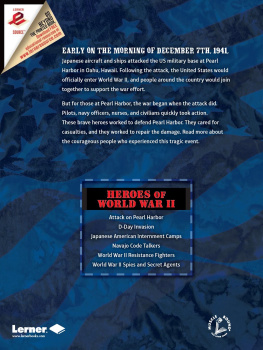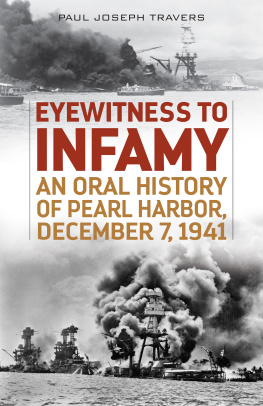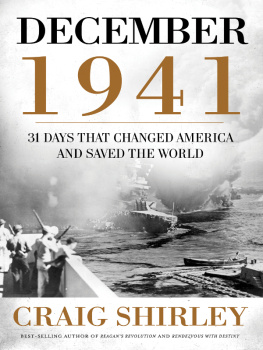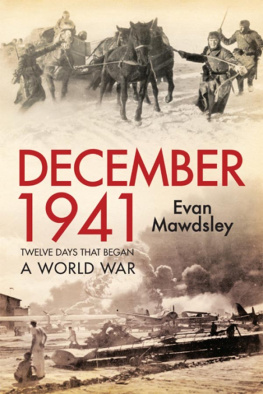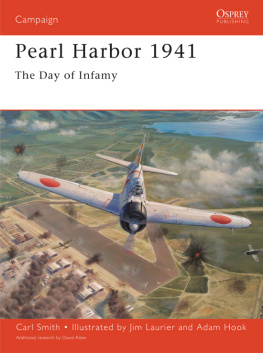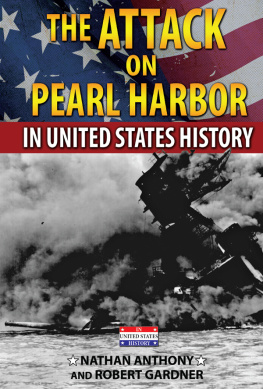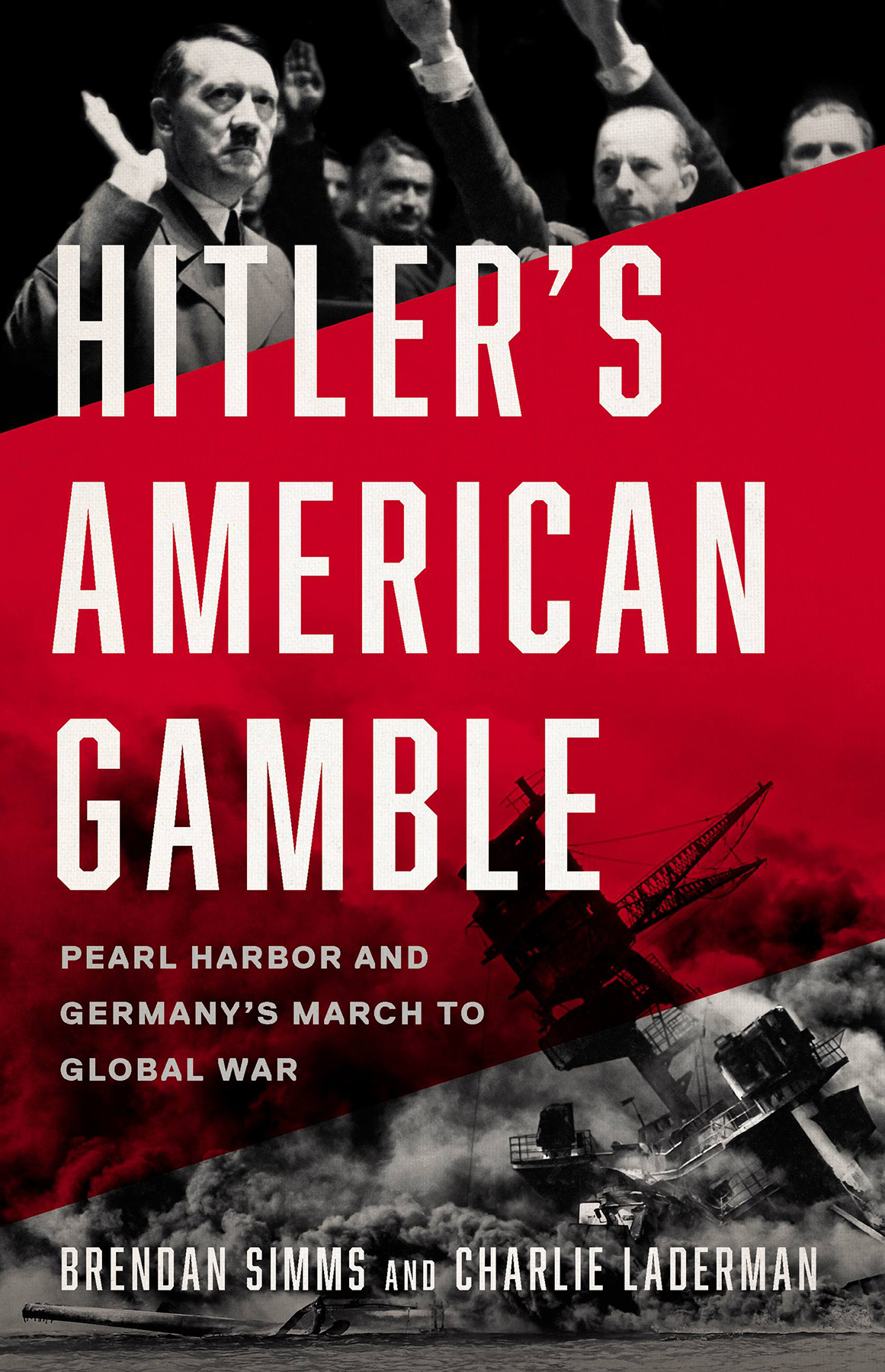
Copyright 2021 by Brendan Simms and Charlie Laderman
Cover design by Chin-Yee Lai
Cover image images MaxyM / Shutterstock.com; Keystone-France/ Gamma-Keystone via Getty Images; US Marines Photo / Alamy Stock Photo
Cover copyright 2021 by Hachette Book Group, Inc.
Hachette Book Group supports the right to free expression and the value of copyright. The purpose of copyright is to encourage writers and artists to produce the creative works that enrich our culture.
The scanning, uploading, and distribution of this book without permission is a theft of the authors intellectual property. If you would like permission to use material from the book (other than for review purposes), please contact permissions@hbgusa.com. Thank you for your support of the authors rights.
Basic Books
Hachette Book Group
1290 Avenue of the Americas, New York, NY 10104
www.basicbooks.com
First Edition: November 2021
Published by Basic Books, an imprint of Perseus Books, LLC, a subsidiary of Hachette Book Group, Inc. The Basic Books name and logo is a trademark of the Hachette Book Group.
The Hachette Speakers Bureau provides a wide range of authors for speaking events. To find out more, go to www.hachettespeakersbureau.com or call (866) 376-6591.
The publisher is not responsible for websites (or their content) that are not owned by the publisher.
Library of Congress Cataloging-in-Publication Data
Names: Simms, Brendan, author. | Laderman, Charlie, author.
Title: Hitlers American gamble : Pearl Harbor and Germanys march to global war / Brendan Simms, and Charlie Laderman.
Other titles: Pearl Harbor and Germanys march to global war
Description: First edition. | New York : Basic Books, 2021. | Includes bibliographical references and index.
Identifiers: LCCN 2021016054 | ISBN 9781541619098 (hardcover) | ISBN 9781541619081 (ebook)
Subjects: LCSH: World War, 19391945Causes. | World War, 19391945Germany. | Strategy. | United StatesStrategic aspects. | World War, 19391945United States.
Classification: LCC D742.G4 S56 2021 | DDC 940.53/43dc23
LC record available at https://lccn.loc.gov/2021016054
ISBNs: 9781541619098 (hardcover), 9781541619081 (ebook)
E3-20211001-JV-NF-ORI
Explore book giveaways, sneak peeks, deals, and more.
Tap here to learn more.

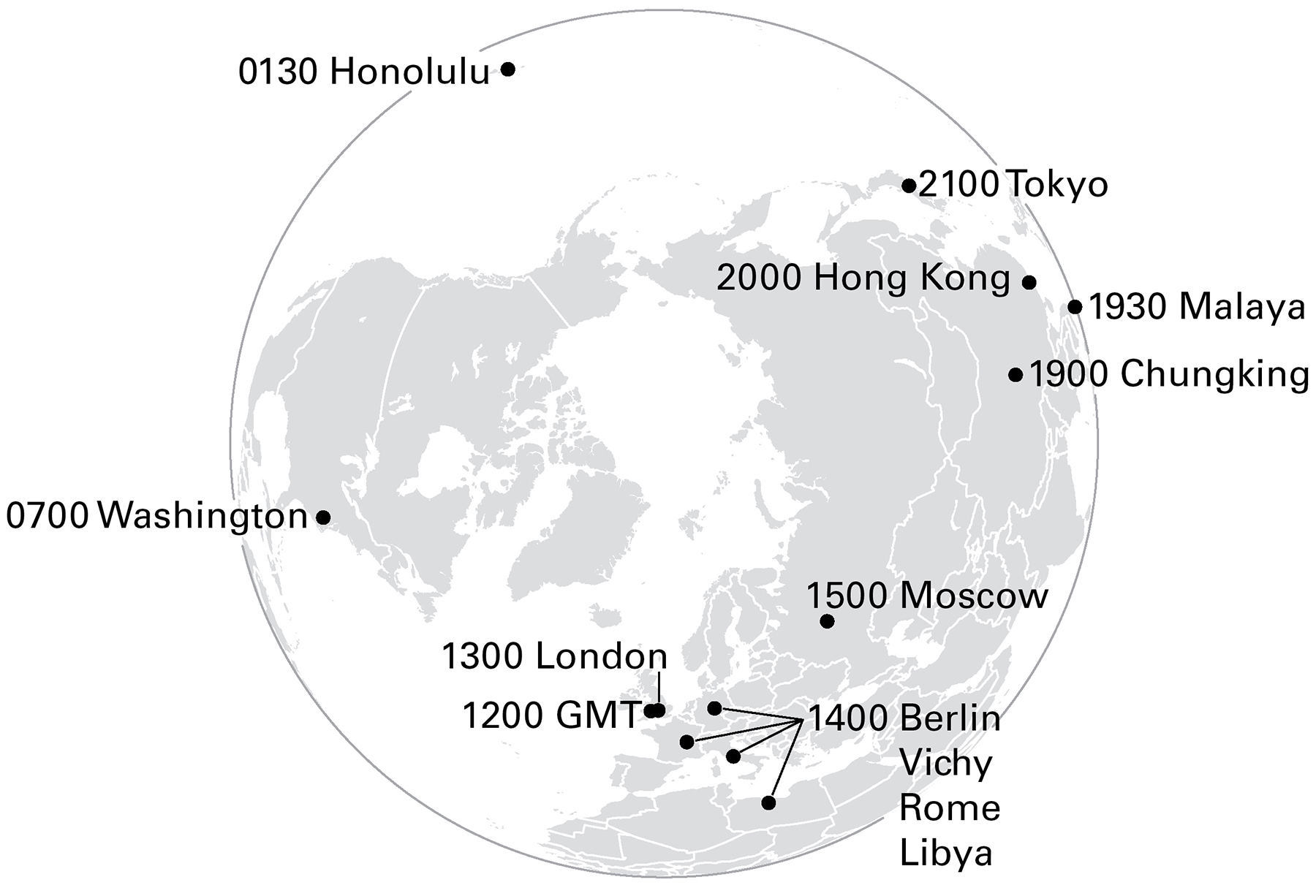
01:30 | Honolulu |
07:00 | Washington |
12:00 | Greenwich Mean Time (GMT) |
13:00 | London |
14:00 | Berlin, Vichy, Rome, Libya |
15:00 | Moscow |
19:00 | Chungking |
19:30 | Malaya |
20:00 | Hong Kong |
21:00 | Tokyo |
Footnote
During World War II, British Double Summer Timetwo hours ahead of GMTwas temporarily introduced for the period when ordinary daylight saving would normally be in effect. During the winter months, clocks continued to be one hour ahead of GMT to enhance productivity. See Why Do the Clocks Change?, Royal Museums Greenwich, www.rmg.co.uk/stories/topics/british-summer-time-bst-daylight-saving#:~:text=During%20the%20Second%20World%20War,of%20GMT%20to%20increase%20productivity.
T he five days from the Japanese assault on Pearl Harbor to Adolf Hitlers declaration of war on the United States were among the most fraught, but remain some of the least understood, of the twentieth century. The dominant narrative holds that Japans surprise attack led inexorably to the outbreak of a truly global conflict. In this view, American opposition to involvement in both the Pacific and European wars simply melted away on December 7, 1941. As the stridently anti-interventionist Senator Arthur Vandenberg subsequently claimed in an oft-quoted remark: That day ended isolationism for any realist.
Yet at the time, Churchill did not regard Americas full-scale entry into the war against Germany as a foregone conclusion. Nor was he alone. Across the world, politicians and military leaders tried to fathom what had happened in Hawaii and where it might lead. In fact, it would take almost one hundred hours from Pearl Harbor for the situation to resolve itselffive agonizing days in which the fate of the world hung in the balance. In the end, it was Hitler who declared war on the United States on December 11, rather than the other way around. Among those who do remember this order of events, the declaration is considered an inexplicable strategic blunder by Hitler, sealing the fate of his regime. But in reality, Hitlers declaration of war was a deliberate gamble, driven by his geopolitical calculations, his assessment of the balance of manpower and matriel, and, above all, his obsession with the United States and its global influence.
The world that emerged on December 12, 1941, was not inevitable a week earlier, nor even immediately after the Pearl Harbor attack. Before December 1941, Asia and Europe were the scenes of cataclysmic conflicts, but these struggles raged across the Eurasian landmass and on the surrounding oceans, essentially siloed in their separate theaters. Between the Pearl Harbor attack and Hitlers declaration of war on the United States, five days passed during which the future of those disconnected struggles was decided, and every major power was forced to commit to one of two camps. This interval was the crucible for a new global alignment that would dramatically alter the course of the conflict and reverberate far beyond the war, with implications we still feel today.
Churchills actions and comments during this pivotal period demonstrate unease and anxiety more than triumphal relief. Immediately upon hearing news of Pearl Harbor, Churchill made urgent plans to travel to Washington. As he informed King George VI, he was desperate to ensure that the influx of aid from the United States, on which Britains fighting capacity depended, does not suffer more than is, I fear, inevitable. They showed little sign of embracing a wider war.
President Franklin Roosevelt was well aware of the national mood. Roosevelt had spent more than a year carefully educating his fellow countrymen about the threat posed by Hitlers Germany. He had established the United States as the arsenal of democracy, providing as much aid as was politically feasible to the Allied nations fighting Hitler. While Roosevelt prioritized Europe, he had evinced comparatively less concern about Japanese ambitions in the Pacific. But now, on December 7, 1941, the United States found itself at war not with Nazi Germany, against whom Roosevelt had devoted so many American resources, but with Imperial Japan. An immediate declaration of war on Hitler was a tremendous political risk at a time when the nations attention and anger were directed against Japan.
Cables from Berlin to Tokyo, intercepted and decoded by US intelligence, suggested that Germany would join any war that Japan fought against the United States, but Hitlers behavior was not so easy to predict. As Roosevelts speechwriter Robert Sherwood later noted, the Nazis were in honour bound by their pledges to the Japanese, but they had not previously shown much inclination to let such bourgeois-democratic considerations interfere with their own concepts on self-interest.


